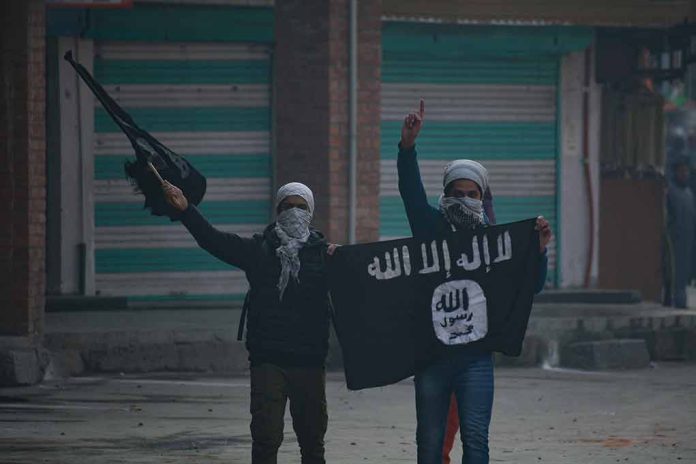
FBI Director Christopher Wray recently highlighted the rising threat of Islamic terrorism in the U.S., warning of potential attacks on American soil.
At a Glance
- The FBI is concerned about potential coordinated ISIS attacks within the U.S.
- A recent deadly attack in New Orleans underscores the immediate threat.
- Online radicalization is complicating efforts to prevent attacks.
- Wray emphasized the ongoing challenge of interpreting fragmented intelligence.
Increasing Concerns of Domestic Threats
FBI Director Christopher Wray expressed significant concerns regarding potential Islamic terrorism on U.S. soil during a “60 Minutes” interview. He noted that recent instances, such as an ISIS-inspired attack in New Orleans, bring these threats closer to home and highlight the risks of rapid online radicalization. Wray warned of potential attacks mirroring the recent ISIS-K attack in Russia, indicating the gravity of the situation.
There was a specific mention of a Pakistani citizen’s arrest, foiling a plan for a mass shooting in Brooklyn. Wray noted, “There was a guy, a Pakistani citizen just a few months ago who we worked with our Canadian partners to arrest. This guy was trying to get into the U.S., to get to New York City to conduct a mass shooting at a Jewish center in Brooklyn. And, in his words, not my words, his words, he wanted to conduct the largest attack in the U.S. since 9/11.”
Challenges of Intelligence and Preparedness
Rapid radicalization and fragmented intelligence present significant hurdles in preventing potential terrorist attacks. The FBI’s warnings have prompted European nations to bolster security measures, especially following threats towards Champions League matches in major cities.
Director Wray stated, “So what I would say to the American people is that, when you think these things are happening half a world away, it’s like that little inscription on your mirror in your car, ‘Objects in the mirror are closer than they appear.'”
The New Orleans attacker, a U.S. citizen, was radicalized online, serving as a stark reminder of the challenges faced in identifying lone-wolf attackers. This form of radicalization emphasizes the urgent need for enhanced counterterrorism efforts.
Regional Threats and Global Implications
While the threat of coordinated attacks persists, intelligence suggests IS’s capabilities are currently limited. General Michael “Erik” Kurilla highlighted that, “ISIS-Khorasan retains the capability and will to attack U.S. and Western interests abroad in as little as six months and with little to no warning.”
Despite the immediate concerns, the National Counterterrorism Center Director Christine Abizaid acknowledged IS’s struggle to orchestrate major threats against the U.S., yet emphasized the importance of vigilance and preparedness at all levels.


